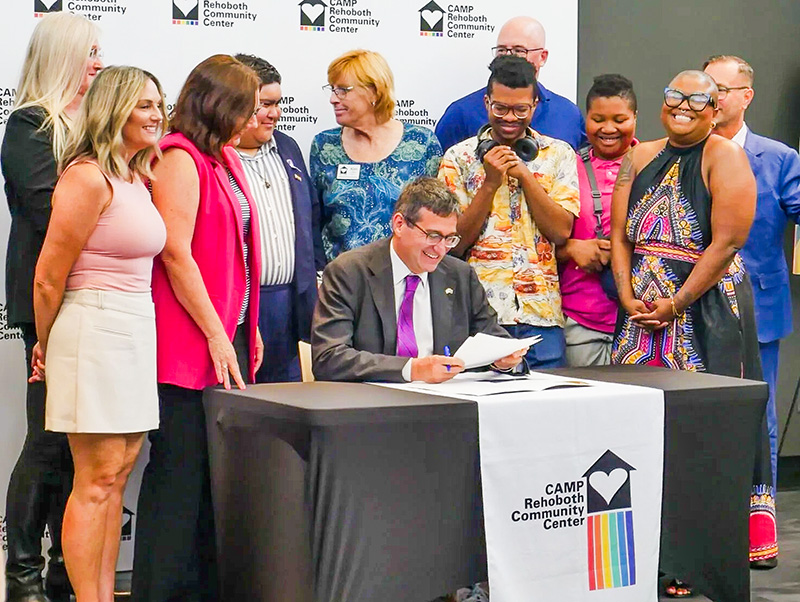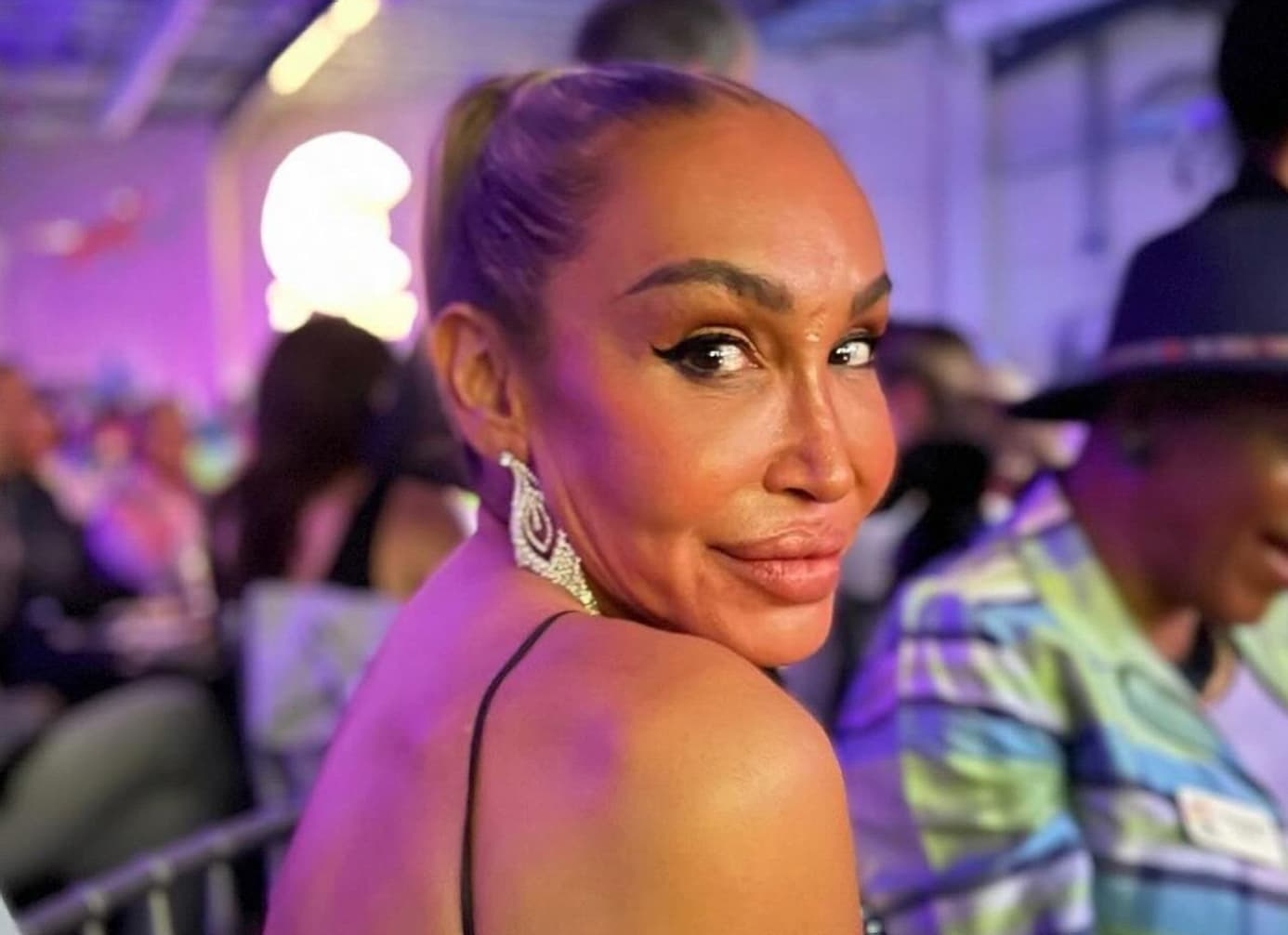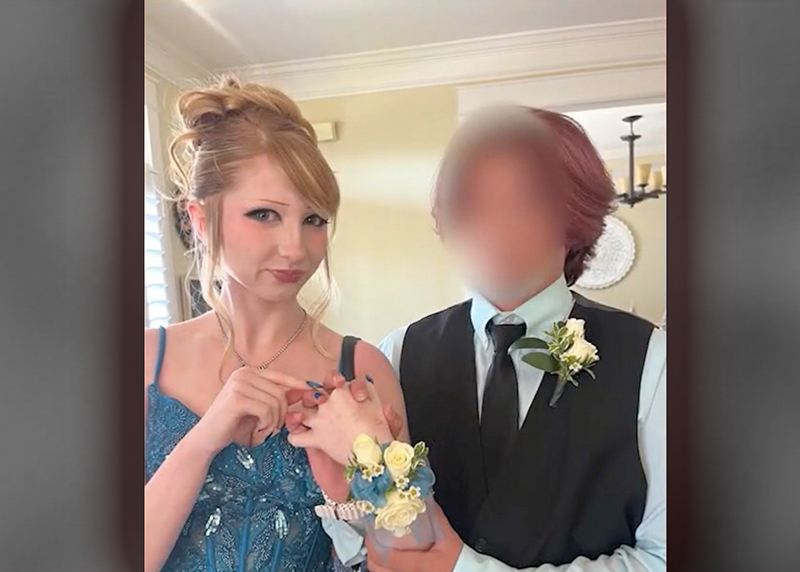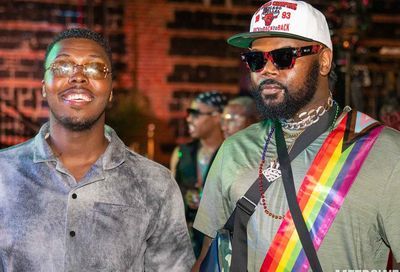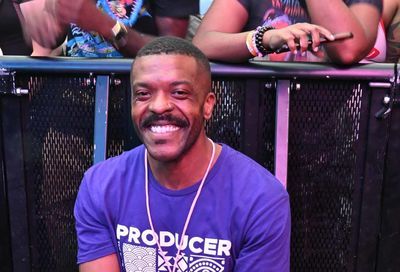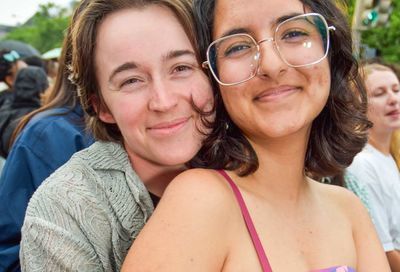Irreverent Icon
Ganymede gets a delicious dose of Warhol's drag diva, Holly Woodlawn
Some might argue that ”icon” is too reverent a word to apply to Holly Woodlawn. From Puerto Rico to Miami to Times Square, Woodlawn has seen her share of seediness and squalor. The title of her autobiography sums her career succinctly: A Low Life in High Heels.
But while some might dismiss Woodlawn, consider those few lines from Lou Reed’s ”Walk on the Wild Side” that have helped immortalize this genuinely American character:
Holly came from Miami F-L-A
hitch-hiked her way across the USA
plucked her eyebrows on the way
shaved her legs, and then he was a she

From that tune to her stature among Andy Warhol’s artistic infamous who populated his celebrated Manhattan studio, The Factory to the insiders’ unsuccessful push to nab her an Academy Award nomination for her small part in Warhol’s Trash, Woodlawn is part of the American fabric, iconic in that she is a representation of a particular place and time.
”Everyone’s calling me an icon,” Woodlawn says from her apartment in West Hollywood, a town she’s called home for about 20 years. ”It’s like something in the church that’s worshipped. I thought, ‘Wait a minute!’ Then I thought, ‘Hmm, like the Lana Turner movie where she’s worshipping gods and goddesses? How pagan! How fabulous!’ I think it’s wonderful. I don’t mind.”
Beyond New York of the 1960s and ’70s, Woodlawn’s career has continued with TV and movie appearances, nightclub acts and more. In 2007, she sat for a series of portraits by famed British artist Sadie Lee. And, celebrating her 62nd birthday next month, her career continues still, including two shows with the upcoming Ganymede Arts’ Second Annual GLBT Fall Arts Festival here in Washington. Then it’s off to Krakow, Poland, to make an appearance at an underground film festival followed by Liverpool, England, to make an appearance with her Lee portraits.
Stopping in D.C. long enough to sing a few songs, Woodlawn has an offer for anyone coming to check out the show: ”If you come to my show, you’ll have a good time. If not, bring a bag of tomatoes — I’ll make a salad.”
METRO WEEKLY: Are you excited about coming out to Washington?
HOLLY WOODLAWN: Please — I’m ecstatic! Washington, D.C., is like my second home — after New York. Honey, during the ’70s I used to take the Amtrak train to my friend’s house in Georgetown practically every weekend. I’m really excited to come back, carry on and scream and yell.
MW: Before we get you back to Washington, I want to go way back, to Miami.
WOODLAWN: [Laughs.] Oh, yeah, way back!
MW: I watched a snippet of you on The Joan Rivers Show, talking about your childhood going to the movies with your uncle, putting on shows in your mother’s clothes after school. Sounds like fun.
WOODLAWN: Actually, it was a yellow T-shirt I would put on my head and make believe I had long, blonde hair and I would sing to Connie Francis, ”Where the Boys Are.” My parents had these drapes that worked like curtains, and I performed. I would sing and do shows for my mother and her girlfriends in the living room. I was about 12, 13, something like that.
MW: And then with your uncle, you’d see these screen divas?
WOODLAWN: Yeah, that was even earlier on, in Puerto Rico. My uncle would take me to the movies and we would see — what was her name? — Lola Flores! All these fabulous, Spanish goddesses. Then I moved to Miami, and my mother took me to see the goddesses: Lana Turner in The Prodigal, Cleopatra with Elizabeth Taylor.
MW: Did those ”goddesses” rub off on you? Or do you imagine your career on stage and screen would’ve happened regardless?
WOODLAWN: Of course they rubbed off! I just did a show here in L.A. for this documentary and I came out in this Cleopatra chaise lounge, white beaded gown. Those things never leave.
I was raised with the movies and all those MGM musicals. It was embedded in my genes, so to speak.
MW: But if you were all alone on a desert island, no audience, would you be compelled to put on a show with coconuts and palm fronds?
WOODLAWN: As a matter of fact, I did! Are you kidding? [Laughs.]
I’m going to sing the song in the show in Washington, ”Princess Poopooly.” It’s a Hawaiian number with a hula. I’ll sing the song, but I don’t have my coconut breasts and my grass skirt. I had a friend who used to work for Disney World — or Disneyland, whatever the hell — and he stole this grass skirt and these coconut… you know… and I used to use them in my nightclub act. But, somehow, I lost them. I think they rotted. [Laughs.]
MW: You might have Disney lawyers giving you a call.
WOODLAWN: Oh, I don’t care! Let them sue me. What are they gonna get? [Laughs.] You don’t have to say we stole them. We borrowed them. And never returned them.
MW: Your childhood sounds sweet, but you did leave home at an early age, right?
WOODLAWN: Oh, I had a wonderful childhood. My parents and I are still the best of friends. In the beginning it’s always tough, especially when their son turns out to be a daughter — and a glamorous one at that.
MW: When you left home, you had $11 in your pocket, your savings from your paper route?
WOODLAWN: Actually, it was $27. Anyway, it wasn’t enough to get to New York.
I ran away from home, with a friend, because my parents found out I was gay and couldn’t understand. Miami at that time was not what it is today, like South Beach. I was 15, 16, something like that.
MW: The friend you left with was in similar circumstances?
WOODLAWN: Oh, yes. She was a mad, Cuban queen. Actually, it was her idea. We only had enough money to go to Georgia. From there, we had to hitchhike. We made it to New York. It took about a week. For some reason, we were lucky. We had truckers — and Marines at one point — who were kind of helpful. We were young and tender! Bless youth. We survived. Then in ’71 I find out Lou Reed wrote a song about that.
MW: It seems that all of America must know of you from ”Take a Walk on the Wild Side.” How accurate are those lines?
WOODLAWN: ”Holly came from Miami, F-L-A.” It’s pretty accurate, oh yeah. When I left Miami, I was like a little, strange-looking kid, very skinny. On the way to New York, I plucked my eyebrows and I shaved my legs. By the time the truck dumped us off in Times Square, I was like a little queen. I came out on the highway.
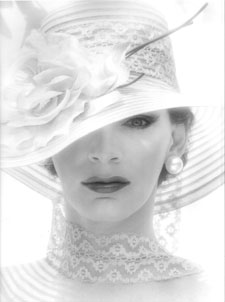
Holly Woodlawn
MW: GLBT kids are still running away from home. Do you hear from young people? Do you have many young, GLBT fans?
WOODLAWN: It amazes me, but I do. They’re very young and very smart. The kids today are very intelligent, very smart and I’m very proud of them. What they have — what we didn’t have when I was young — is support groups, especially for transsexuals, kids who have problems with their identity. There’s help out there.
Still, there are those people. I’m not political, but [whispering] Republicans — put that in small letters — and those religious zealots. They’re always going to be around.
I was just lucky that I went to New York at a time when things were changing. It was really more creative. Actually, people were doing more drugs. I got there during that. I was very lucky in that way.
MW: What year did you land in New York?
WOODLAWN: 1962.
MW: So, seven years later, you were living in New York during Stonewall?
WOODLAWN: I was in Stonewall that night. I was there, but I left early before all the madness, the girls holding the cops for ransom or whatever.
It was all mounting. It was the heat, the humidity. In July and June, it’s like, ugh. And Judy Garland had died. It was just all of it.
[Stonewall] was one bar where we could all hang out and carry on and scream and yell. I think the owner wasn’t paying off the cops. It was one of those nights where the girls just said, ”Fuck youse all!” And they just locked the door and kept the cops in. Really, nothing would’ve happened if it wasn’t for the news picking up on it. Then it went nationwide.
MW: At the time, did it seem historic?
WOODLAWN: No. It wasn’t that big. But like I said, I went home early. The next morning — I lived like a block away — I was walking toward Sheridan Square, where the Stonewall Inn was, and I saw all these people. There was this black queen, Miss Marsha, and she was running around screaming and yelling. I said, ”What the hell is going on?” And she said, ”Oh, the girls, they got the cops in there!” All the TV cameras were around. Everyone started coming to find out what was going on and the crowd just got bigger and bigger. Then the cops started pushing people back. They got nasty with the gay people. Everyone started — not rioting — just saying, ”We’re gay!” That was that. And it just got bigger and bigger.
The next year, that’s when we started the first gay-pride parade. It was just up and down Christopher Street. The year after that, it was through the Village. It just got bigger and bigger. Look at what the girls did! People forget that and that’s what amazes me. If it wasn’t for the drag queens, honey, [gays] wouldn’t be getting married.
MW: You say you’re not political, but…
WOODLAWN: I’m still very proud.
MW: Considering you’ve been called America’s first and foremost drag queen, is that the language you would use? How do you identify?
WOODLAWN: I’m transgender, so to speak.
MW: That phrase didn’t really exist when you were finding your identity.
WOODLAWN: At the time, I was taking hormones and was going to get a sex change, but thank God I changed my mind — but that’s me. I do believe there are girls out there who should. But that’s what’s so wonderful about now compared to then. Then, it just wasn’t understood. There weren’t doctors you could go to, or people you could go to for counseling. Now, that’s all available, and it’s more understood.
But when I was younger, if you looked like a woman, it was called ”unreadable” — I’m from the old country. It was against the law, female impersonation. If the cop was in a lousy mood and you were wearing mascara, they could haul you off to jail.
MW: I’m reminded of the United Arab Emirates today. They’re engaged in a crackdown on cross-dressing.
WOODLAWN: In Dubai? You’re kidding. Where they built that fucking island like a palm tree?
Oh, watch my language! Just bleep me like Kathy Griffin — who I love! I’m going to see her show when I’m in Washington. When I watch her program, it’s like, ”Hi, I’m Kathy Griffin…” and the rest of the hour is ”bleep,” ”bleep,” ”bleep.” I think she should play an instrument called ”the bleeper.”
Back to Dubai — I can’t believe that! Honey, you can’t be fabulous without the gays. Like the ’80s, when so many people were dying, there went art. Without gay people, there would be no culture! Seriously, the Greeks, the Spartans, Alexander the Great — they loved it! I mean, really, grow up.
MW: But here, we’re making progress, right?
WOODLAWN: A lot of progress, I would say. Our voice is listened to and respected. You turn on the television and there’s Ellen DeGeneres getting married. That’s wonderful! Twenty years ago, she would’ve been tarred and feathered. And when I was a kid, not only tarred and feathered. Honey, please, they would light you up.
MW: Were you harassed much at any point in your life? It’s hard for me to imagine many people wanting to mess with you.
WOODLAWN: I must have an angel who, whenever trouble is heading my way, picks me up by the collar and throws me across the street. But I’ve been in many situations. I’ve had knives at my throat, guns at my head. Somehow, I’ve always survived. I could’ve become very bitter and horrible, but, you know, I’ve always had friends who helped me out. Like I said before, I had a very wonderful childhood, parents that understood me — eventually.
I’ve had a great life. I was lucky. When I got involved with the whole Warhol art experience, I was not just accepted but I was treated like a movie star, which was great. I was invited to parties, Studio 54, all of that.
MW: Even with coming so close — but not close enough — to being nominated for an Oscar? You’re not at all bitter about that?
WOODLAWN: No, no, no. I was disappointed. My bitter days are over. George Cukor had this petition to nominate me. It sort of made a mark because at the time underground films, independent films, were not eligible. I wasn’t eligible, period, because there was no category. If there was, I would’ve won an Academy Award, because I would’ve been the only one nominated.
MW: When you look around your home, is there something you cherish as much as you would have an Oscar?
WOODLAWN: Yes. As a matter of fact, last year, I finally got an award. There was this event marking the day Andy Warhol died. It was this big star — a big, gold, heavy-duty thing. That was the first award I ever got. It’s sitting on my mantel.
That, and when I first moved here to Los Angeles, I went to fashion-design school. I was a high school dropout. I had to take the GED, which I passed. That amazed me! Five hours in a room with this test — yeesh! Those books are really thick!
Then I applied for fashion-design school and I went there for two years. I finally graduated with the saucer on the head, the black gown, the diploma — the whole thing. That I cherish more than the award, actually, because I really worked hard for it. I earned it. The award was more of an honor. It’s nice to be appreciated, but who doesn’t want to be?
MW: When you look back to the days of The Factory, do you miss it? Was it just a chapter?
WOODLAWN: Just a chapter. A wonderful chapter. But I don’t live in the past. As you get older, there are those wonderful memories that come back.
There are friends from that era — the Warhol thing and The Factory — that are still here. Joe Dallesandro is still here. I don’t see him much. Mary Woronov, who was part of The Factory before me. We still talk about the old days and how wonderful and how fabulous and how bombed everybody was, all the stuff we got away with. And people treated us like movie stars. We were just kids in a candy store having a good time, and we got away with it! Everything we did, we would be in the papers and magazines: ”How chic!” We set the style for everything.
MW: With movies about the Warhol era, I Shot Andy Warhol, for example, do you usually say, ”Job well done,” or do you have a different sort of critique?
WOODLAWN: I reviewed that one for The Advocate. I went and saw it. None of that was true. The director, the producer, they knew it. I knew it. We all knew it. I didn’t want to write a scathing review, but I wanted to be honest, which was really tough, dear. I hated it. They didn’t get it. They didn’t get the period. Plus, why do a movie about some miserable dyke when you should be doing a movie about the whole era being fabulous. Valerie Solanas was like a drop in a bucket of water.
MW: With Washington having been like a second home, when were you here last?
WOODLAWN: I think it was in the ’80s. Jackie Curtis and I used to hang out there and go out to all the clubs. We’d go to the discos. We hung out there and I made a lot of friends, like family. It was a place to go where they loved us and we had a good time — and of course did a lot of drugs, but at that time, who didn’t? At that time, the drugs were good. Now I wouldn’t even touch them. Oy! God! The crap that these kids are making and taking is unbelievable! You’ve got to be careful. I’m not against anything. I’m definitely not against being young and having a good time, and doing whatever the hell you feel like doing as long as you don’t hurt anybody.
[Siren sounds in the background.] I didn’t do it! I’m innocent! [Laughs.] The fire department is a few blocks away, so this goes on all day. But, honey, I’m from New York. Nothing bothers me.
MW: Do you still have friends in Washington?
WOODLAWN: Honey, that’s why I’m so excited about going back! My manager, who used to manage my career in New York, is there. He owns six bed and breakfast inns. Talk about a monopoly! My musical director from New York is there. Of course Robert, who I used to stay with. They’re all waiting for me to come home.
When I do my nightclub act, it’s structured, but I think all hell’s going to break loose and I’ll jump off the script. I’ll sit down and have a cigarette and a cocktail and, ”I’m back!”
Holly Woodlawn appears for dinner and drinks in an intimate setting Thursday, Sept. 25, at Floriana’s, 1602 17th St. NW. Tickets cost $100 and seating is extremely limited. Woodlawn returns Friday, Sept. 26, to open the Ganymede Fall Arts Festival at the Church Street Theatre, 1742 Church St. NW. Tickets for both the gala reception, 8 p.m., and show, 9:15 p.m., are $30. For tickets or information, call 800-494-8497 or visit www.ganymedearts.org.
Support Metro Weekly’s Journalism
These are challenging times for news organizations. And yet it’s crucial we stay active and provide vital resources and information to both our local readers and the world. So won’t you please take a moment and consider supporting Metro Weekly with a membership? For as little as $5 a month, you can help ensure Metro Weekly magazine and MetroWeekly.com remain free, viable resources as we provide the best, most diverse, culturally-resonant LGBTQ coverage in both the D.C. region and around the world. Memberships come with exclusive perks and discounts, your own personal digital delivery of each week’s magazine (and an archive), access to our Member's Lounge when it launches this fall, and exclusive members-only items like Metro Weekly Membership Mugs and Tote Bags! Check out all our membership levels here and please join us today!








